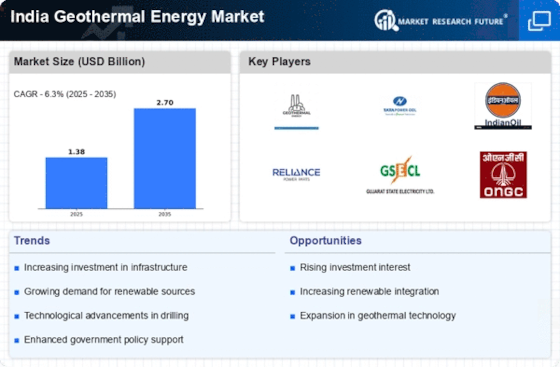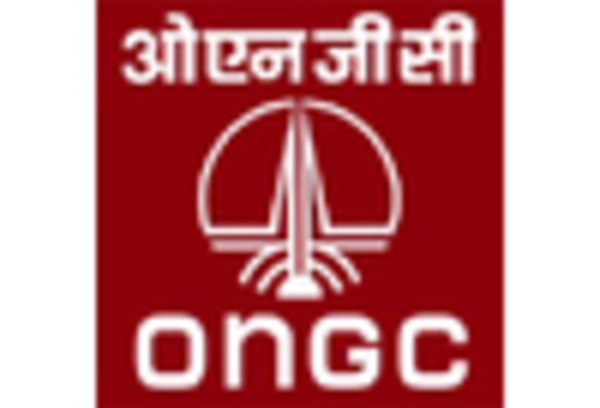Market Analysis
In-depth Analysis of India Geothermal Energy Market Industry Landscape
The India Geothermal Energy market has been experiencing dynamic shifts in recent years, reflecting a complex interplay of various factors. Geothermal energy, derived from the Earth's internal heat, holds immense potential in the country's quest for sustainable and renewable energy sources. The market dynamics are shaped by a combination of government policies, technological advancements, investor interest, and environmental considerations.
Government initiatives play a pivotal role in steering the trajectory of the geothermal energy market in India. The Indian government, cognizant of the need for clean energy, has introduced favorable policies and incentives to encourage the development of geothermal projects. The National Geothermal Energy Policy, formulated to harness the vast geothermal potential, outlines regulatory frameworks and financial incentives to attract investments. These policy interventions create an enabling environment for both domestic and international stakeholders, fostering growth in the geothermal energy sector.
Technological advancements have also been instrumental in shaping the dynamics of the Indian geothermal energy market. Innovations in exploration techniques, drilling technologies, and power generation systems have increased the efficiency and viability of geothermal projects. The integration of advanced technologies not only enhances the overall performance of geothermal plants but also reduces the costs associated with exploration and extraction. This, in turn, contributes to making geothermal energy a more competitive and attractive option within the broader energy landscape.
Investor interest is a key driver in the market dynamics of India's geothermal energy sector. As the awareness of environmental sustainability grows, investors are increasingly drawn to renewable energy projects, including geothermal. The potential for long-term returns and a reduced carbon footprint make geothermal projects an appealing investment proposition. The influx of capital into the sector stimulates project development, creating a positive feedback loop that further fuels the market's growth.
Environmental considerations play a crucial role in shaping the market dynamics of geothermal energy in India. As the nation grapples with the challenges of climate change and strives to meet its international commitments, the emphasis on cleaner and greener energy solutions has intensified. Geothermal energy, being a low-carbon and environmentally friendly source, aligns with the country's sustainability goals. The growing awareness of environmental issues among policymakers, businesses, and the general public has created a conducive environment for the expansion of geothermal energy in India.
However, challenges persist in the market dynamics of India's geothermal energy sector. The high upfront costs associated with exploration and drilling, coupled with the uncertainty in resource assessment, pose financial risks for investors. Additionally, the lack of a robust supply chain and infrastructure for geothermal equipment and services can impede the seamless development of projects. Addressing these challenges requires collaborative efforts from the government, private sector, and research institutions to create a supportive ecosystem for the geothermal energy market to flourish.
The market dynamics of India's geothermal energy sector are marked by a dynamic interplay of government policies, technological advancements, investor interest, and environmental considerations. While positive strides have been made with supportive policies and technological innovations, challenges persist that necessitate concerted efforts from all stakeholders. As India continues to strive for a sustainable energy future, the geothermal sector is poised to play a crucial role in the country's evolving energy landscape.


















Leave a Comment